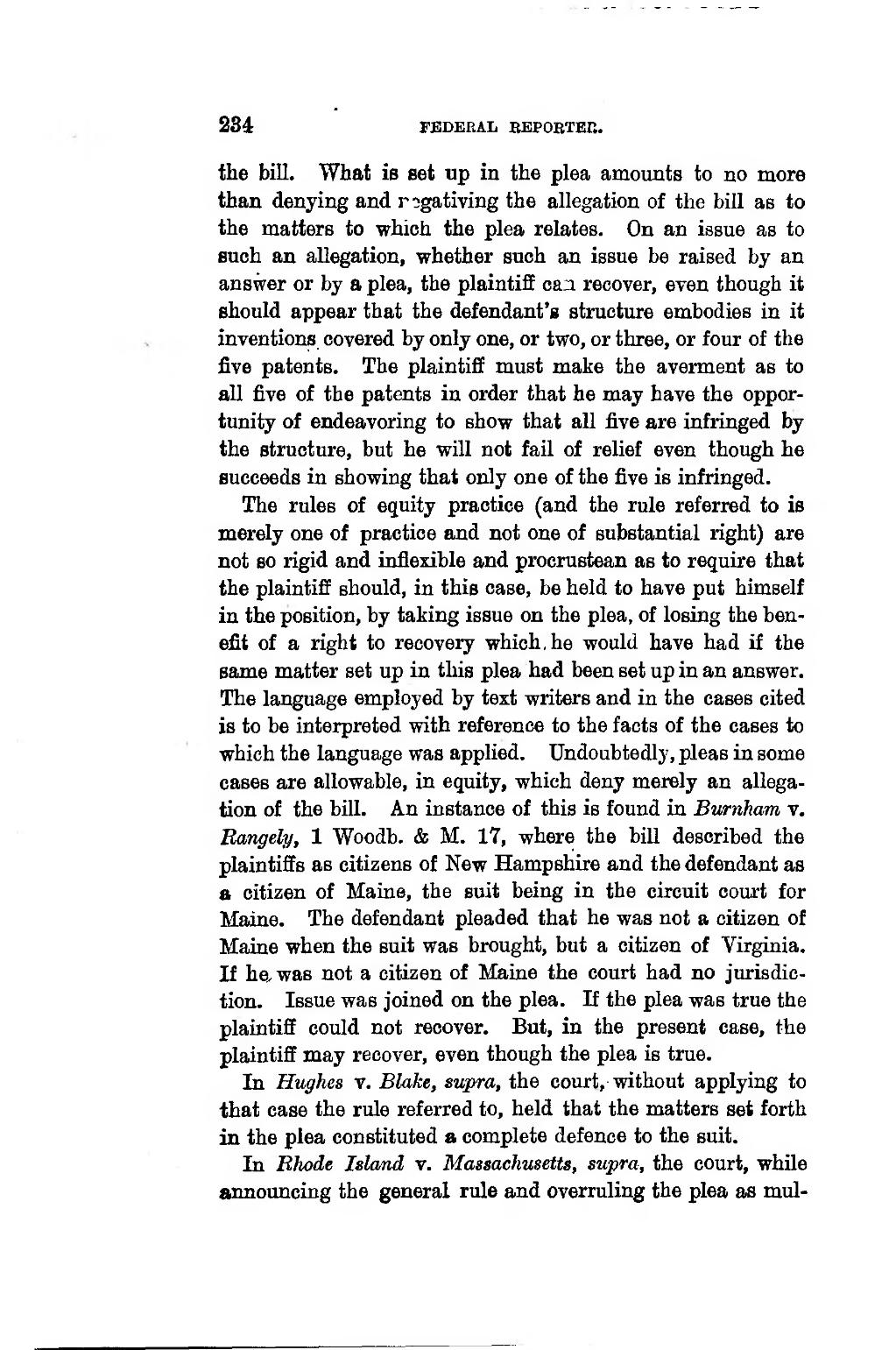23e FEDERAL REPORTER. �the bill. What is set up in the plea amounts to no more than denying and rogativing the allegation of the bill as to the matters to which the plea relates. On an issue as to Buch an allegation, whether such an issue be raised by an answer or by a plea, the plaintiff can recover, even though it ehould appear that the defendant'» structure embodies in it inventions covered by only one, or two, or three, or four of the five patents. The plaintiff must make the averment as to ail five of the patents in order that he may bave the oppor- tunity of endeavoring to show that ail five are infringed by the structure, but he will not fail of relief even though he Bucceeds in showing that only one of the five is infringed. �The rules of equity practice (and the rule referred to is merely one of practice and not one of substantial right) are not 80 rigid and inflexible and procrustean as to require that the plaintiff should, in this case, be held to have put himself in the position, by taking issue on the plea, of losing the ben- efit of a right to recovery which, he would have had if the same matter set up in this plea had been set up in an answer. The language employed by text writers and in the cases cited is to be interpreted with reference to the facts of the cases to which the language was applied. Undoubtedly, pleas in some cases are allowable, in equity, which deny merely an allega- tion of the bill. An instance of this is found in Burnham t. Rangely, 1 "Woodb. & M. 17, where the bill described the plaintiffs as citizens of New Hampshire and the defendant as a citizen of Maine, the suit being in the circuit court for Maine. The defendant pleaded that he was not a citizen of Maine when the suit was brought, but a citizen of Virginia. If he-was not a citizen of Maine the court had no jurisdic- tion. Issue was Joined on the plea. If the plea was true the plaintiff could not recover. But, in the present case, the plaintiff may recover, even though the plea is true. �In Hughes v. Blake, supra, the court, without applying to that case the rule referred to, held that the matters set forth in the plea constituted a complete defence to the suit. �In Rhode Island v. Massachusetts, supra, the court, while announcing the general rule and overruling the plea as mul- ����
